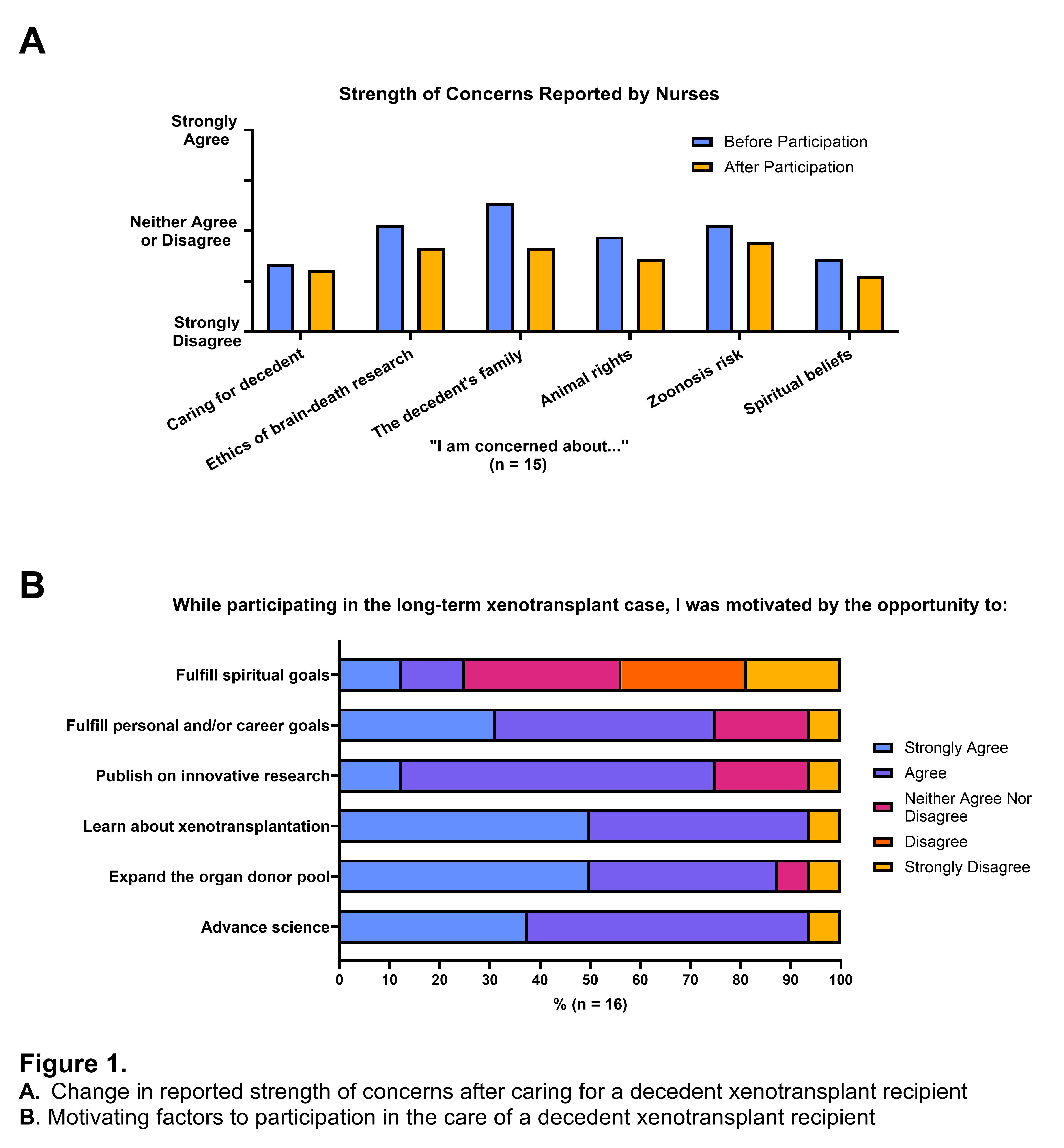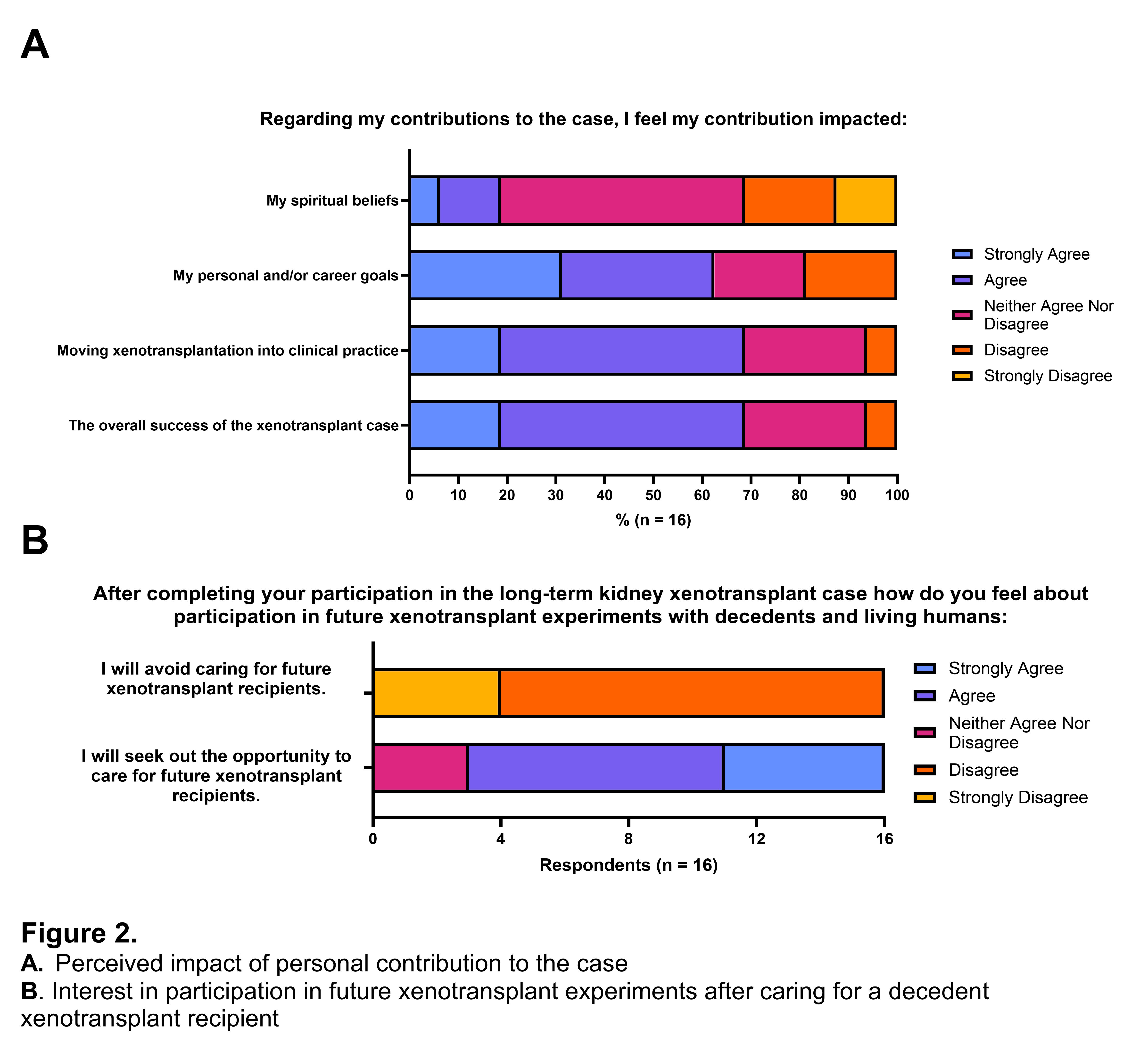Nursing perceptions, motivating factors, and potential barriers to participating in the care of a decedent xenotransplant recipient
Juan Esteban Baus Davalos1, Grace Hammond1, Grant Eickel1, Ian S Jaffe1, Katya Kaplow1, Cecilia Deterville1, Christopher Hickson1, Shushaunna Bennett1, Jonah Klapholz1, Keilee Luo1, Nikki Lawson1, Jacqueline I Kim1, Rebecca Dieter1, Adam Griesemer1, Sapna A Mehta1, Robert A Montgomery1, Jeffrey M Stern1, Philip Sommer1, Kathleen Zavotsky1, Elaina P Weldon1, Karen Khalil1.
1NYU Langone Transplant Institute, New York, NY, United States
Introduction: Xenotransplantation offers a potential novel source of organs, and the use of the decedent model allows us to analyze the safety and efficacy of xenografts. This study assessed nursing staff perceptions of xenotransplantation research and identified barriers to their care of a participating decedent, with the aim of encouraging future involvement.
Methods: An IRB-approved anonymous Qualtrics survey was distributed to critical care nurses involved in the care of a brain-dead decedent enrolled in a 61-day xenokidney transplant study at NYULH. Participation in the 25-question survey was voluntary, and all survey questions were optional.
Results: Of the 25 respondents, 16 were included in analysis with the remaining excluded for incompletion (7) or ineligibility (2). Among respondents, the most common hesitation for participation was concern for the participant’s family (66.67%), ethics of caring for the decedent (60.00%), and risk for zoonosis (53.33%). Responses indicated levels of concern decreased across all areas after caring for the decedent (Figure 1A). The most selected motivating factors were the opportunity to advance science (93.75%) and learn about xenotransplantation (93.75%). Additionally, 87.5% of respondents stated they were motivated by the opportunity to expand the organ donor pool (Figure 1B). Most respondents felt as though they impacted the overall success of the experiment and impacted progress towards implementation of xenotransplantation in clinical practice (68.75%). Moreover, 62.50% of respondents felt their participation impacted their personal/career goals (Figure 2A). Despite noted concerns, 81.25% of respondents reported they would seek out opportunities to be involved in future xenotransplantation cases and no respondents reported an intent to avoid future xenotransplantation cases (Figure 2B).
Conclusions: After assessing perceptions, potential concerns, and motivating factors, critical care nurses involved in the care of a xenotransplant decedent recipient expressed interest in future involvement, highlighting the potential for expanding personnel participation in the care of xenotransplant recipients.


[1] Nursing
[2] Perceptions
[3] Xenotransplant